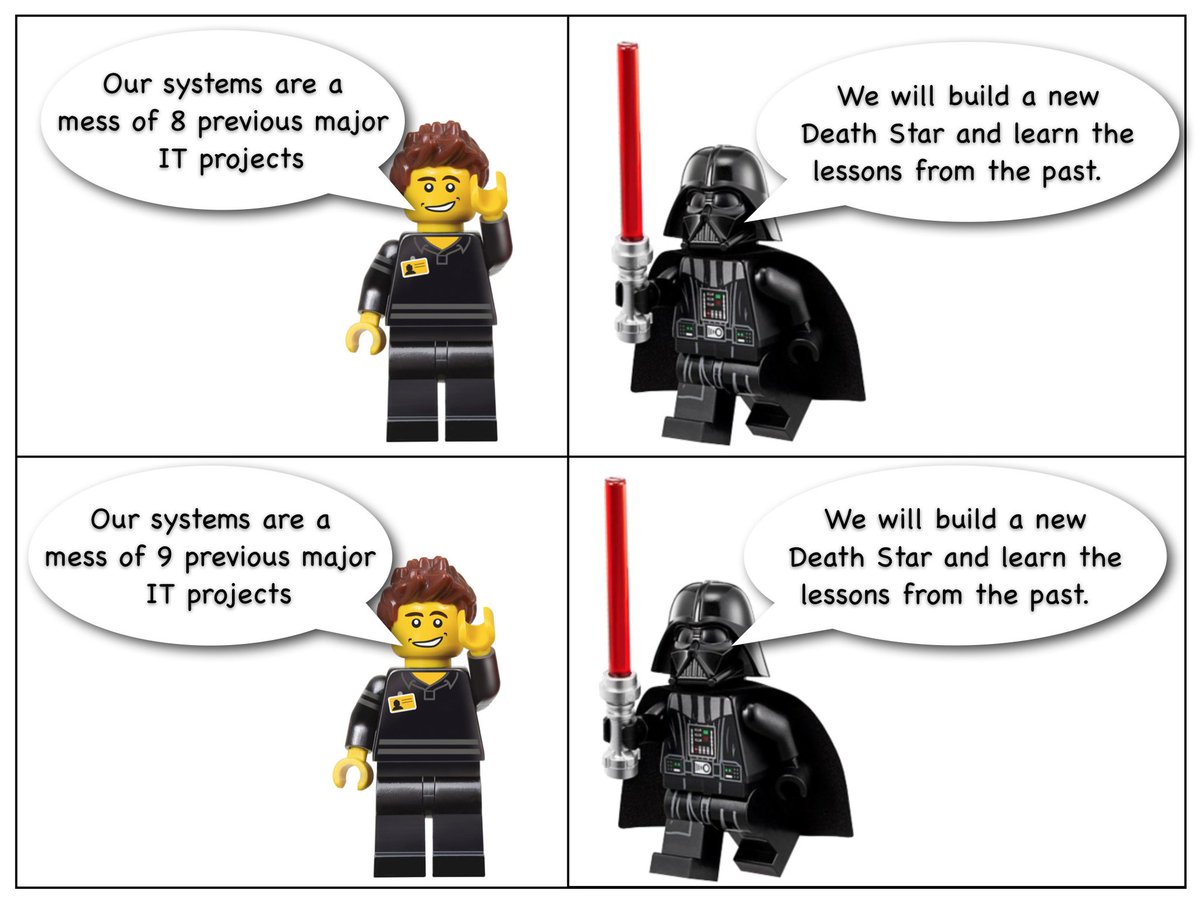
X : Thoughts on digital transformation?
Me : I prefer half hearted digital catch-up.
X : Why?
Me : Be honest. It's a bunch of laggards discovering the internet and spending vast sums removing custom built stuff that was industrialised long ago in order to be more 2010.
Me : I prefer half hearted digital catch-up.
X : Why?
Me : Be honest. It's a bunch of laggards discovering the internet and spending vast sums removing custom built stuff that was industrialised long ago in order to be more 2010.
X : That's a bit hard.
Me : Not really. You need to be honest otherwise you'll think you're doing something innovate or leading the field or ... you're playing catch up from a long long way behind, the goal is not to lead but at least to keep the front pack in sight.
Me : Not really. You need to be honest otherwise you'll think you're doing something innovate or leading the field or ... you're playing catch up from a long long way behind, the goal is not to lead but at least to keep the front pack in sight.
Think of it more like, you're in a formula one race and your digital transformation is more replacing the horse and cart with a car. It's not a very good car, you're not going to be competing but at least it's a little bit less embarassing.
X : Wait - what happens to the horse?
Me : Yep, that's inertia. You're going to have lots of arguments over the importance of stables, how better hay can make the horse run faster, what if we use multiple horses, the change of practice and what about the blacksmiths?
Me : Yep, that's inertia. You're going to have lots of arguments over the importance of stables, how better hay can make the horse run faster, what if we use multiple horses, the change of practice and what about the blacksmiths?
X : Covid is a forcing function for this?
Me : Exactly. The isolation economy is accelerating these plans for catchup. Same with NYC at the beginning of the 20th C, it was mountains of horse manure (and public outcry) that forced the rapid adoption of the automobile.
Me : Exactly. The isolation economy is accelerating these plans for catchup. Same with NYC at the beginning of the 20th C, it was mountains of horse manure (and public outcry) that forced the rapid adoption of the automobile.
X : I think you're being a bit harsh.
Me : No. If you fool yourself into believing that your transformation is something genuinely novel rather than playing catch-up then you will never ask the question "Why are we so far behind?"
That's the real problem you need to solve.
Me : No. If you fool yourself into believing that your transformation is something genuinely novel rather than playing catch-up then you will never ask the question "Why are we so far behind?"
That's the real problem you need to solve.
If you don't solve that problem, then this transformation will just become another in a long list of half hearted transformations waiting for the next half hearted transformation to start 

• • •
Missing some Tweet in this thread? You can try to
force a refresh




